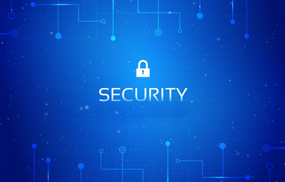
Security is one the most serious issues if we talk about e-commerce.
Ways to Boost Your E-commerce Security
Security is one the most serious issues if we talk about e-commerce. Cases like cyber-attacks, identity theft, payment frauds, etc are apparently increasing day by day and they can be incredibly costly and inconvenient and require a significant amount of time and resources to counteract if you don't have the right measures in place. This is mainly due to the increased number of internet users doesn't have proper awareness of technology. Many people use internet to shop online, make bills payment and transfer money etc. So, it is of utmost importance to be extremely proactive and cautious.
Security threats faced by e-commerce today -
If e-commerce websites do not have the good authentication system, it could lead to great loss of both data and money. The most common threats are Distributed Denial of Service (DDoS) attacks, Credit Card fraud, Malware, Bad bots, E-skimming, Social engineering attacks, Clickjacking, Phishing, etc. Attackers use these threats for credit card related frauds by stealing customer credentials and/or payment information, causing downtime/ crashes and divert all your traffic to competitor sites, imitating your content to lower your SEO rank, Price manipulation to steal your data, etc.
Ways to improve/ Boost your e-commerce websites
1) Open Source Vs. Commercial or Closed Source Software’sOne of the first things to consider when purchasing new ecommerce software is whether you want a solution
based on open source or closed source code. Closed-source software has all rights retained by its developers and/or distributors, making it easier for the company to control the development environment. Yet, this doesn’t necessarily mean that closed source code is always safer—it simply comes down to the quality of the developers.
Open-source code is created by an open community of developers, meaning there are no restrictions as to who can use, examine or change the code. While this means that the code is checked more regularly (so vulnerabilities are usually discovered quickly and more often) this also means that the source code could be easily accessed by cybercriminals or others with harmful motives. And if they manage to break in, they can access a whole host of unprotected information. So, choose only SSL- certified and security complaint getaway services and other third-party service providers or vendors.
2) Payment Card Industry (PCI) Compliance -
The payment card industry security standard council was formed in the year 2006. It ensures that the companies who deal with the accepting, processing, storing and transmitting of card information have to maintain a secure environment. PCI DSS is not a law in itself but a standard made by a collaboration of various branded card company like Visa, MasterCard, JCB, AMEX and Discover. If your company is not PCI DSS compliant, it has to face some serious consequences like fines, card replacement cost, costly forensic audits and off-course lost to brand image.
3) Secure Hypertext Transfer Protocol (S-HTTP) / HTTPS -
S-HTTP is an advanced version of normal HTTP internet protocol with enhanced security which ensures secur authentication, public key encryption and digital signatures. Secure HTTP enabled website makes the transaction more secure by negotiating encryptions schemes used between a server and the clients. It can seamlessly integrate with the HTTP and ensure an optimal end-user security with different defence mechanisms.
4) Failover Systems -
Protect your system with a failover system that lets you switch to previous backups of systems and data, should your primary web store environment become unavailable. A failover system with one or more of these ‘redundant’ installations means that in the event of a power outage, technical server problem, or other issues, your clients won’t be cut off and can go a long way in saving the company from huge losses.
5) Create a security focused mindset within your organization -
Regularly train your employees and tell them what steps to take to ensure that they do not compromise the sites security, privacy, integrity, and authenticity. Force a strong password policy within your organization and make sure that all the employees follow the guidelines and practices.
6) Onboard an Intelligent Security Solution -
A comprehensive and managed security solution offers multi-layered security that combines the power of automation (for scanning, monitoring traffic and other regular tasks) with the expertise and skills of certified security experts (to conduct regular security audits, pen-tests and security analyses). It enables you to maintain a robust security posture for your e-commerce website/ application and ensure that it is always authentic and available to legitimate users.
Copyright @SecurWires. Designed & Developer By MindScript